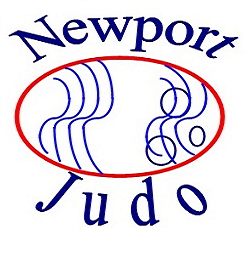Injury Rehabilitation Stretching Techniques in Martial Arts
In martial arts, practitioners often push their bodies to the limit. Injuries can occur, making injury rehabilitation stretching techniques essential for recovery. Proper stretching methods not only help in healing but also prepare the body to return to training safely and effectively. Understanding when and how to stretch is critical to a successful rehabilitation process.
 |
| Stand Tall: Respect and Affect For More Information OR Book A Class |
Understanding the Phases of Recovery
The recovery from a soft tissue injury typically unfolds in phases. The first 72 hours after an injury are crucial. During this time, the R.I.C.E.R. protocol—Rest, Ice, Compression, Elevation, and Referral—should take precedence. Avoid stretching during this initial phase, as it can exacerbate the injury. Instead, the focus should be on managing swelling and pain.
Transitioning to the next 10 to 14 days, most swelling will have decreased. At this stage, martial artists can introduce gentle active rehabilitation techniques. Utilising heat and massage becomes beneficial. After these treatments, light static and passive stretching can play a significant role in recovery. Static stretching involves holding the body in a stretched position, while passive stretching uses an external force—like a partner or apparatus—to aid the stretch.
The Importance of Flexibility
Flexibility is a cornerstone of martial arts. It enhances performance and prevents injuries. Therefore, regaining flexibility during rehabilitation is essential. As practitioners begin to heal, static and passive stretching should be employed more frequently. At this point, it’s vital to listen to your body. If stretching causes pain, cease immediately. Discomfort is acceptable, but pain should not be ignored.
During rehabilitation, it’s also advantageous to incorporate PNF (Proprioceptive Neuromuscular Facilitation) stretching techniques. PNF stretching not only increases flexibility but also strengthens targeted muscle groups. This method combines stretching with muscle contractions, making it especially effective in reinforcing stability and range of motion—both vital for martial artists.
Long-Term Rehabilitation and Strengthening
Once martial artists move past the initial injury and rehabilitation phases, focus shifts to long-term recovery. The aim is to make the affected area stronger and more flexible than it was before the injury. Dynamic and active stretching techniques become crucial in this phase. Dynamic stretching involves controlled movements that gently push the body to its limits. Active stretching utilises the strength of opposing muscles to achieve a stretch without external assistance.
For those engaged in martial arts, these advanced stretching techniques can significantly enhance overall performance. Improved flexibility aids in achieving high kicks and maintaining balance during complex maneuvers. Transitioning back to full training should be gradual, ensuring that the body is well-prepared for the rigours of martial arts practice.
Incorporating Injury Prevention Strategies
To minimise future injuries, it’s essential to integrate proper injury rehabilitation stretching techniques into regular practice. Maintaining flexibility should be a continuous endeavour, even when one is not recovering from an injury. Regular stretching can prepare the muscles and joints for intense physical activity, thus reducing the risk of injuries.
Moreover, a well-rounded training regimen in martial arts includes strength and conditioning exercises alongside flexibility training. This holistic approach ensures that martial artists remain balanced and agile. Emphasising strength, agility, and flexibility will ultimately cultivate resilience against injuries.
Final Thoughts
Understanding and implementing effective injury rehabilitation stretching techniques can expedite recovery from injuries sustained in martial arts. Practitioners should adhere to the appropriate stretching methods at each phase of recovery, transitioning from rest and compression to gentle stretching exercises and finally to dynamic movements.
By prioritising flexibility and strength through targeted stretching, martial artists can enhance their skills while minimising future injury risks. Continual practice not only improves performance but fosters a deeper connection to the art of martial combat itself.
For a detailed examination of stretching techniques and their impact on rehabilitation, refer to the work by Brad Walker on "Stretching for Injury Rehabilitation." Understanding this resource can significantly elevate a martial artist's recovery and overall performance.
References
- Walker, B. (2024). Stretching for Injury Rehabilitation.
- Dornan, P., & Dunn, R. (1987). *Sporting Injuries*.
-
Strategic Stretching: Optimising Recovery and Injury Rehab
Discusses the R.I.C.E.R. protocol post-injury, phased stretching progression, static, passive, and PNF techniques.
-
Stretching and Muscle Fascia | Types of Fascia and Anatomy
Explains muscle fascia and the role of stretching in restoring flexibility and motion after stiffness or limited movement.
-
Reducing Junk Food Cravings for Judo Athletes
Includes links to posts about stretching benefits and routines you can do at home.
-
Frequency, Intensity, Time, Type: FITT Training
Covers stretching principles within FITT guidelines, including static, passive, and PNF frequency and duration.
Book A Class
 Random thought on Life, Judo Olympics, Judo Self Defense, The Art or Judo Kata, Judo An International Sport. Things that inspire or annoy me or things that I just had to write down.
Random thought on Life, Judo Olympics, Judo Self Defense, The Art or Judo Kata, Judo An International Sport. Things that inspire or annoy me or things that I just had to write down.
